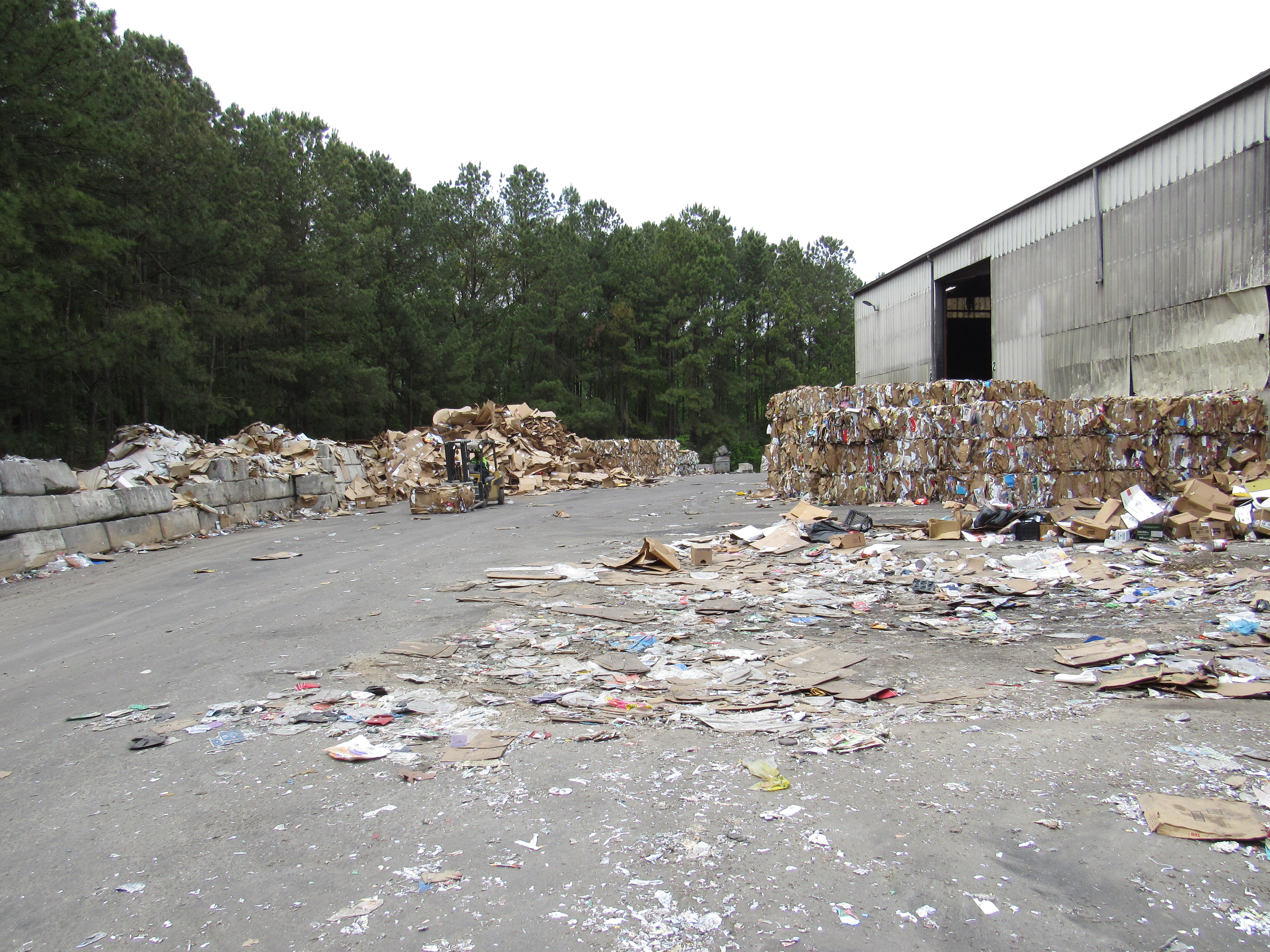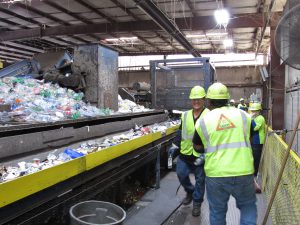
Suki Janssen’s phone constantly lights up with notifications, a sign that even though it’s 2 p.m. on a Friday, her day is far from over. She occasionally pauses to reply to messages and emails that demand her attention as the director of the Athens-Clarke County Solid Waste Department.
As the director of the Athens-Clarke County Solid Waste Department, Janssen is responsible for managing the contract of the recycling facility, as well as waste reduction programs and events. She’s also responsible for finding a local solution to one of the biggest crises the global recycling industry has ever seen.
“In 20-plus years, I’ve never seen it this bad,” said Janssen.
Why It’s Newsworthy: Recycling measures across the globe have had to change drastically because of China’s National Sword policy. Local recycling centers in the United States are now having to come up with new ways to compete with the entrance of states that formally shipped a majority of their recycled goods to China.
Global to Local Focus
When thinking of global business powerhouses, many think of trade or economics; a likely forgotten industry is recycling. Worth around $200 billion each year, recycling transcends borders and economies. However, new shifts in imports around the world have now threatened recycling not only internationally, but in Athens-Clarke County.
Built 25 years ago, the current recycling facility is located in an industrial area of Athens. The 22,000- square-foot facility was originally created as a dual-stream system in order to handle the large influx of newspapers and other recyclable materials. Around 2011, the facility switched to a single-stream flow to make it easier for people to recycle, since it’s no longer necessary to sort recycled goods into multiple different bins.
Because the facility was originally built for dual-stream usage, there are issues with the size of the space as well as the kind of machinery in use. For example, on a recent tour of the facility, Mason Towe, the program education specialist in the waste management division, noted that one machine that was meant to be sorting glass had been shifted from its original position and was no longer catching material as well as it used to. Machine issues are just one of the reasons for contamination that happens at the facility.
Contamination at the Facility
Joe Dunlop, the waste reduction administrator for the Athens-Clarke County recycling center, estimated that the facility’s contamination rates were currently around 20%. However, the current national rates are somewhere between 15-16%. According to Dunlop, the recycling facility receives around 80 tons of inbound material every day, and about 16 tons is straight-up trash, recyclables too contaminated to be sold as commodities or recyclable material that was missed by either machine or human sorting.
“When we switched to single-stream, we’ve gotten a lot more participation, but with more participation you get more errors as well,” said Towe.
According to information obtained from an open records request from the Athens-Clarke County recycling facility, the monthly tonnage comparisons from fiscal years 1996-2019 at the Recovered Materials Processing Facility (RMPF) vary greatly. Fiscal years 2016 and 2017 saw negative percent increases in tonnage totals, while fiscal years 2008, 2013 and 2014 saw considerable percent changes at 12.18%, 17.81% and 10.6%, respectively.
A variety of factors, including the national economy, can influence the tonnage received at the facility, Janssen and Towe said. Other factors include recent packaging changes, like the transition from glass and plastic container baby food to squeeze packets.
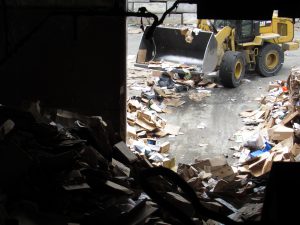
Big Proposals and Uncertain Changes
These contamination issues are part of a larger push for facility improvement that prompted the Solid Waste Department to submit two proposals for consideration in the 2020 Special-Purpose Local-Option Sales Tax (SPLOST) project list. A new recovered material processing facility (RMPF), which would be located at the landfill, is expected to cost $16.1 million. The renovation of the current recycling center into a creative reuse space for the Center for Hard to Recycle Materials (CHaRM) and the teacher reuse store has a budget of $1.1 million. The alternate requests for each project are currently at $8,463,000 and $886,000 respectively, meaning that each proposal passed through committee at roughly half budget.
“Right now we made it through the first pass at half-funding, but I don’t think we’ll make it through the end. There’s so many projects, so many good projects, so many of our parks haven’t been attended to properly in years,” said Janssen. “But I will say, if something doesn’t happen for us, some pretty drastic measures will have to be taken for recycling as well.”
Janssen suggested several different options that the waste management division could employ if the SPLOST proposals don’t receive funding. They could take loans out from the county’s Solid Waste Authority to pay for infrastructure, or borrow the money to build the facility but not equip it. Privatization is another option, although Janssen said that seemed unlikely.
“In this current climate, we’ve talked to some behind the scenes and they’re just not real interested right now to add infrastructure when there’s a lot of unknowns still in the recycling markets,” said Janssen.
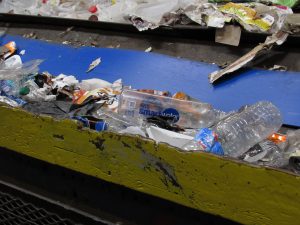
The National Sword
Despite the recent boom in the recycling industry within the past 10 years, these unknowns Janssen mentioned have greatly come from China’s policies regarding contaminated recyclables.
Many recycling enterprises are now facing major economic issues created by China’s passing of the “National Sword” policy, sometimes referred to as the “Green Fence” or “Green Sword,” in 2017. Essentially, the Chinese policy permanently banned the importation of non-industrial plastic waste.
This has created a problem for not just the United States but also many other countries, as around 45% of the world’s plastics have been exported to China since 1992, according to a study conducted by researchers at the University of Georgia (UGA).
“I’ll be honest with you, there have been recycling facilities closing down across the United States, altering drastically what they’re taking, so we’ll be looking at everything,” said Janssen.“Everything will be laid on the table.”
Janssen said many Western states like California, Washington and Oregon used to ship their recyclables to China and relied on the country’s acceptance of the material that might not have been as clean as it should have been. Now, with the “Green Sword” policy, many states on the West Coast and in the Midwest have turned to the existing domestic markets for business.
Since the Athens-Clarke County facility has historically relied upon domestic markets for recyclable shipments, the ban didn’t immediately impact the center. Janssen said the recycled products from the facility primarily stayed in the Southeast; the Athens-Clarke County facility sells recycled product to vendors like Mohawk Industries in Calhoun or American Fiber Services in Smyrna.
However, with the entrance of the West Coast states and Midwest states, the domestic in-markets have seen an influx in participation and with that participation, a build-up of recyclable product no longer clean enough to pass muster.
“So, with the competition, there’s a glut of material that in-market businesses can choose from, and that means all of our revenues have dropped substantially. I mean, I’m talking substantially. It’s been a struggle this year,” said Janssen.
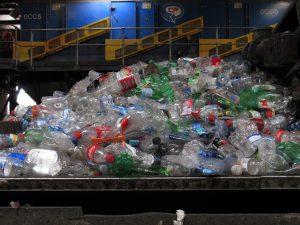
It’s not just the Athens-Clarke County recycling center taking hits to business. Across the United States, cities are canceling or shutting down their recycling programs. Many states, like Tennessee or Florida, have started sending their recyclables to landfills, while many states have resorted to burying their recycling. Globally, countries are making the decision to bury or burn their recyclables.
Present and Future Solutions
While it does seem as though the recycling industry has hit a crisis point, there are local solutions that can have a bigger impact. Caitlin Martin, who works with the recycling center as the commercial recycling intern, said one of the most important tools for recycling is understanding the role of personal connection to a product and its life cycle.
“There’s a disconnect between people thinking that they have power to do stuff or that their part matters,” said Martin. “It’s a group effort that needs be actualized.”
Other solutions that Melissa Link, the District 3 commissioner for Athens, suggested include: using less single-use plastics like straws or silverware, reducing plastic bag consumption through a potential ban in the city or changing the rate of styrofoam use in Athens-Clarke County schools. With all these tips, Link did want to highlight the good work that the Athens facility was doing.
“I think we’re probably doing the best job in the state of Georgia, but there’s a lot of room for improvement and we’re working on it. We have a great staff that’s just busting their butts,” said Link. “We have no choice but to be effective and efficient.”
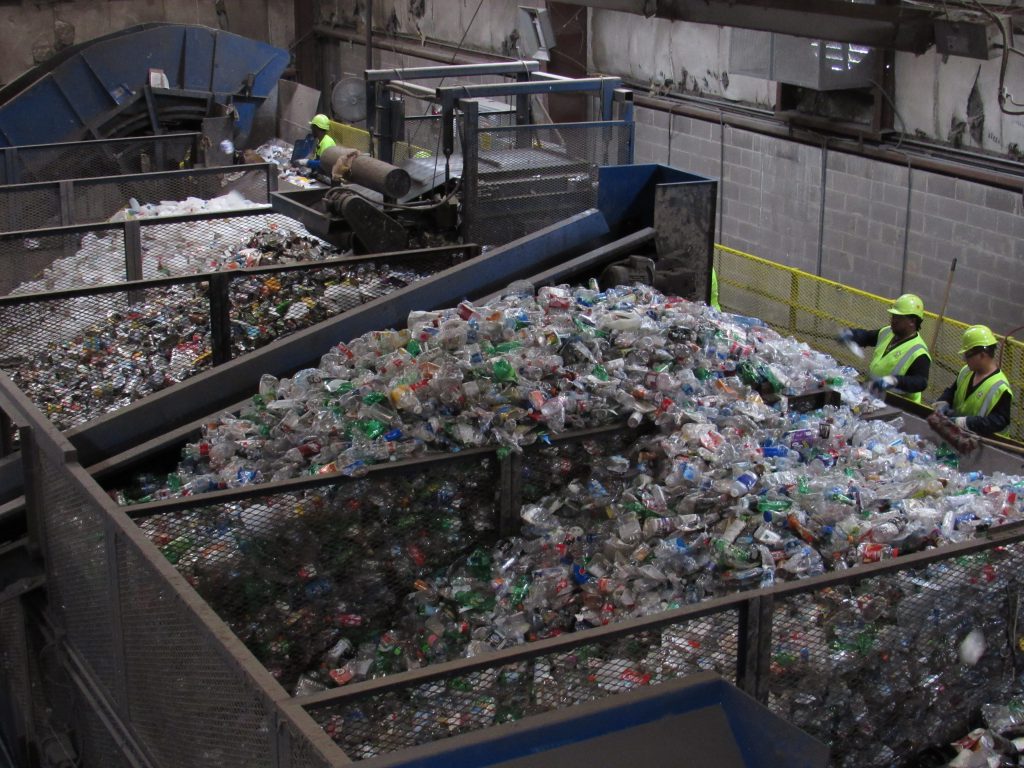
Ellie Cash is a senior majoring in journalism in the Grady College of Journalism and Mass Communication at the University of Georgia.


